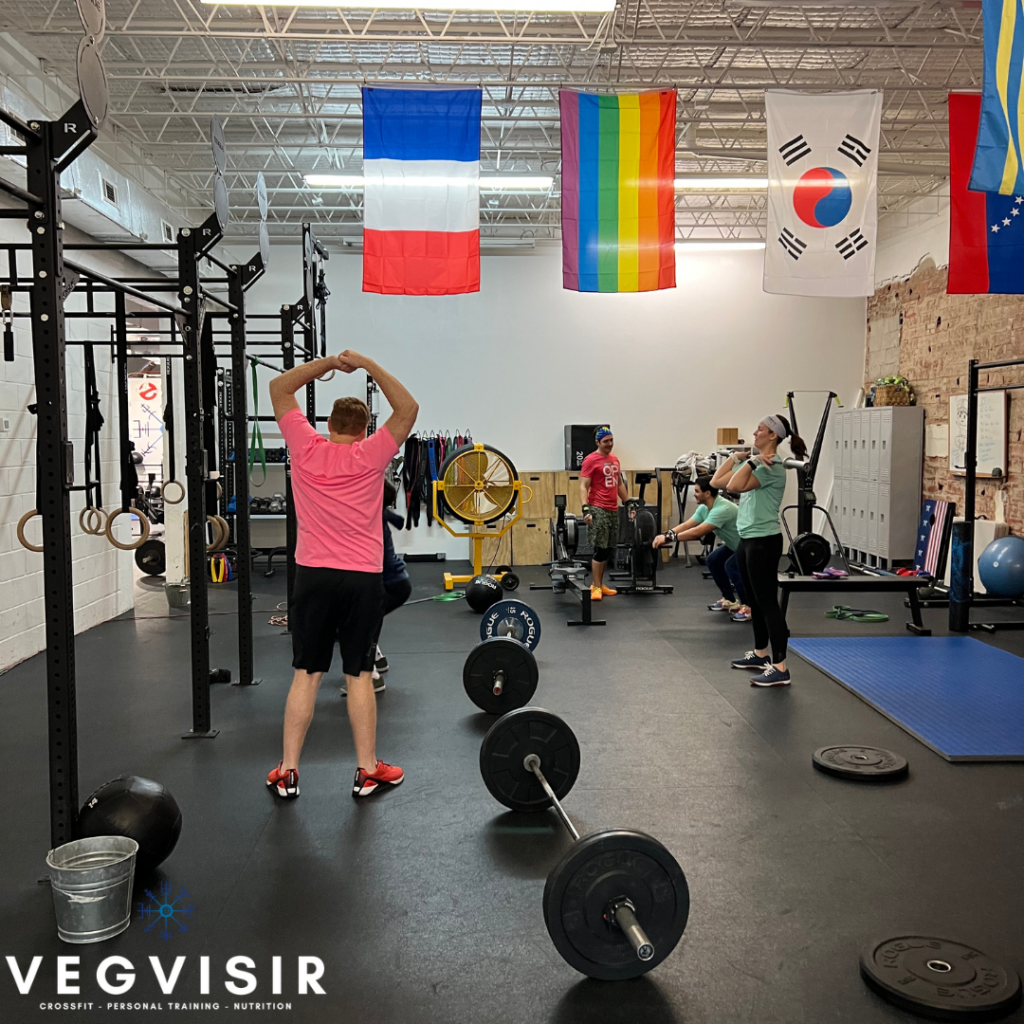How should you warm up before training?
Here’s the answer!
A good warmup prepares the body for effort. Some people require more time to get primed to train, and some people require less. We’ll go over a very general plan you can adjust for your body and your training style.
First, it’s great to just get moving before working out. We want to increase body temperature, get the heart rate up to increase blood flow, and get more oxygen to the muscles. You have lots of options here, but we’ll often use a “cardio” activity like running, rowing, or biking. You can certainly walk, skip or do jumping jacks.
You’ll know you’re warming up properly if you start to breathe a little harder and feel like taking off a layer of clothing. That means your body is waking up and getting ready to work. Don’t overdo it here: your warmup isn’t your workout. We’re just “priming the pump,” so to speak.
After a bit of movement—5 minutes is often enough—it’s great to start working your joints through increased ranges of motion. We have all kinds of ways to do this. You might want to use common fitness movements such as lunges, squats, push-ups and pull-ups, or ring rows, but you can also use dynamic movements such as arm circles, hip circles, high kicks, toe touches, and all kinds of “animal walks” that allow you to work your joints in various ways.
The key here is to slowly increase speed, intensity, and range of motion as your body loosens up and your brain connects with your muscles. We don’t do a lot of static stretching here—that would be holding stretches for long periods of time. Static stretching is best done after a workout. In a warmup, we prioritize dynamic movements that allow you to slowly increase the range of motion in all your joints.
Again, you might spend 5 minutes in this stage of warmup. You’ll know you’re in the right spot when movements start to feel smooth and natural and joints feel lubricated and ready for more work. We usually see clients peel off another layer during this stage of warmup.
At this point, some people are ready to start training—but it usually depends on the kind of workout you’re about to do. We generally add one more section: a specific warmup.
In this stage, you simply perform some of the movements you’ll do in your workout. But you use lighter loads, reduce your speed, or only do a few reps. For example, if someone is working up to a heavy set of barbell squats, we might assign that client 4-5 warmup sets with increasing loads. Or if we’re teaching a more complicated movement like a kettlebell snatch, we might break the movement down and work on a few specific aspects.
The point: to close out the warmup you should start doing some of the things you’ll do in the workout. You can also use this final stage to improve your skill with these movements. For example, you might review jump-rope technique and then focus on perfect movement in the last part of warmup so you don’t miss at all during a tough conditioning workout.
At this point, you should be ready to go! If you’re doing strength training, your next set should be considered a “work set”—it’s no longer part of the warmup. If you’re doing conditioning, it’s time to start the clock and rip into your session.
Remember, warmup length varies from person to person. Age and other factors can affect how much you need. Weather can, too. If you’re training outside and it’s hot and sunny, you might need less warmup time. If you’re training in a cool garage in winter, you might need more. If you don’t feel ready to get going after the warmup, it’s OK to do more warmup activities.
If you’d like to talk to us about warmups, workouts, and your specific fitness goals, book a consultation today: Click Here!

